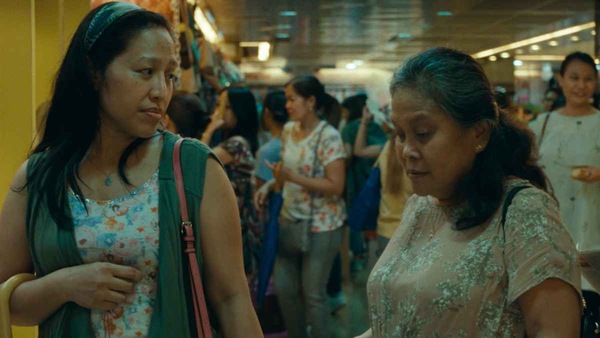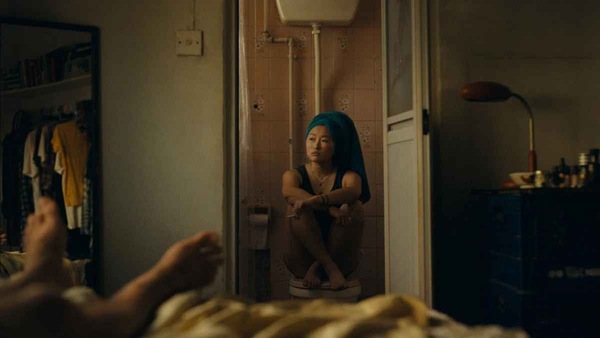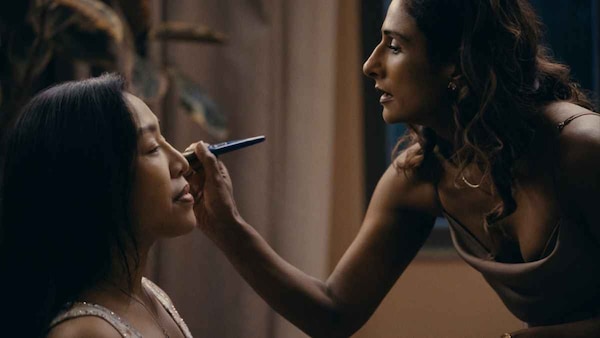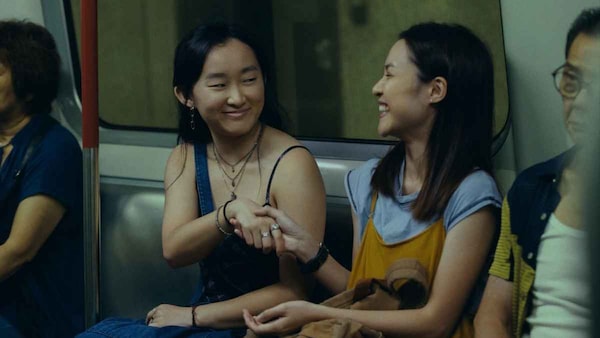Expats review: Nicole Kidman-led show throbs with textured moral conundrums
The Lulu Wang-directed series quietly simmers until it powerfully erupts

Last Updated: 07.04 PM, May 10, 2024
Story: An adaptation of Janice Y. K. Lee’s 2016 acclaimed novel, The Expatriates, the series set in Hong Kong dives into the lives of three American women, Margaret (Nicole Kidman), Mercy (Ji-young Yoo) and Hilary (Sarayu Blue), who find themselves bound together by one fateful night. Lulu Wang has created and directed all the episodes of the drama that foregrounds questions around assimilation, alienation, and coming to grips with loss.
Review: Lulu Wang broke out in 2019 with her sophomore feature, The Farewell, which instantly marked her as a credible filmmaker. One can only imagine her being flooded with offers after the success of that film, which even made it to the Golden Globes. Expats, her long-awaited follow-up, speaks to her incredible courage as an artist who doesn’t baulk in taking viewers through a thoughtfully considered series of unrelenting dramatic troughs. The material she is grappling with is inherently difficult and thorny, Wang acknowledges it every step of the way as she nudges you to invest in the densely layered inner lives of its characters.

The emotional drama underpinning Expats unfurls with such a measured pace it occasionally veers close to inertia. One of the primary aspects Wang demands upfront is patience, and if one sticks through, it becomes easier to comprehend why it is posited as such an immediate ask. Fundamentally, the show is pivoted on the slow and soul-sucking journey of healing and recovery. As Margaret insists on her desire to not be defined by her tragedy, the show’s thematic tug comes into clear view. The loss numbs Margaret to a degree that she becomes trapped in the maze of conflicted and irresolvable feelings it generates. She is haunted by her quest for definite answers; the need for closure slowly chips away at her life and relationship with her family. Wang interjects this with necessarily discomfiting conversations on motherhood. Recalling the thrilling audaciousness with which Maggie Gyllenhaal provoked similar questions in her 2021 film, The Lost Daughter. Expats arguably pushes the needle way further, delivering jolting confessionals on all the messy and hushed-up anxieties, and purportedly undesirable talk about the costs and burden of motherhood. In one scene, Margaret admits to Hilary, her neighbour and once-closest friend, how overwhelmed it makes her feel; she had to rent a separate place for herself where she goes and lets off steam, momentarily shedding her many roles as mother and wife. The nonjudgemental lens ensures Margaret’s insecurities about her children and her fears she may be losing them to her live-in ‘helper’, Essie (an exceptionally moving Ruby Ruiz), are dealt with sensitivity and candour.

Through myriad angles, the show approaches the switch from womanhood to motherhood, the rules imposed on the woman that she must abide by which a man may need not even bother. There is of course the bitter and hard self-conditioning the woman has to enforce to step into her new role. When someone implies that she is a homemaker, the inadvertent, harmless remark cuts Margaret deeply to the extent that she is compelled to leave, muffling her emotions. Back in the States, she had an active professional life as a landscape designer. Moving to Hong Kong for her husband, Clarke’s (Brian Tee) job promotion, her career takes a backseat and she has been struggling to adapt to a new identity and is left with no option but to focus all of her energy on her kids. Hilary, who has long opposed the prospect of having kids, suddenly finds herself considering it when confronted with her crumbling marriage. Her husband, David (Jack Huston), seems to have given up on the marriage.

There is care and attention with which Wang achieves delicate brushstrokes in creating moments where characters witness absolute devastation and offer a hand in pulling each other out of the pit of seemingly irretrievable helplessness and loneliness. The focus is equally on the supposed perpetrator as it is on the ‘victims’ whose lives are shattered. “Are we ever forgiven?” One of the show’s opening questions turns into its driving inquiry, as we follow Margaret and Mercy attempting to piece back their lives. Racked by gnawing guilt, Mercy is convinced she’s cursed and goes on a spree of making terrible mistakes. Props to Ji-young Yoo’s performance for continually expanding her character’s emotional canvas through a streak of disasters and making us stay by her.

Wang’s superpower as a director is her sharply glocal understanding of the many ‘sub-classes’, Mercy being only one among them, that have to exist in order to undergird cosmopolitan places like Hong Kong. This is a show that is determinedly keyed into the melting pot status of Hong Kong, straddling the various echelons of multiple nationalities keeling into the other. Wang is interested in the interstices between these mini-worlds as much as she is in how they resist fluid boundaries. The singular relish of the miniseries lies in examining how the sutures loosely hemming the cheek-by-jowl worlds of privilege and lack threaten to come undone. The show shuttles between the isolated high rises where the expats have built almost a gated colony of sorts, and the decrepit local markets and chock-a-block, shabby apartments existing at several removes. Anna Franquesa-Solano’s camerawork vividly renders both the grime and sterility of these worlds, as the show probes deeper into the power and class chasm. Wang has set the show in 2014; the Umbrella Movement frames the restless political background. There are constant power cuts and the intense prevailing uncertainty somehow seems to have leaked into the lives of the rich expats at the particular stage in which we meet them, who otherwise can only spare a passing glance at the news.

Wang trains her perceptive eye on the multicultural hybridity of Hong Kong. Although the show is largely in English, there’s a generous melange of other languages, ranging from the locally spoken Cantonese and Mandarin to Tagalog, which is what the Filipino house staff speak and that Margaret’s kids end up imbibing. While the employers dangle the illusion of intimacy to their staff, the latter occasionally mistake a fleeting erasure of the divide for possible friendship only to be rudely reminded of their place the next morning – the chasm remains ever so present. In the stellar, standout ninety-six minute long fifth episode, which Wang has also written, we are whisked into a day in the lives of this stratum of working-class emigrant and native women who cushion those above them in the chain, often times called on to provide an emotional salve to their employers’ disintegrating marital lives.

Verdict: Lulu Wang’s Expats is a deeply intelligent, profound, and emotionally expansive tale of moving forward, guilt, forgiveness and womanhood. Showrunner Lulu Wang meticulously sets the parallel narrative strands in motion but gradually succeeds in skilfully braiding an array of women’s voices. There’s ample inclination here for the narrative to wrench out melodrama, but Wang accomplishes a beautifully textured and unrushed feat of storytelling that is keen on tenuous and splintered emotional terrain. The narrative is treated with dignity, full-bodied complexity, and subdued ache. While Nicole Kidman excellently captures a mother’s crippling terror and panic, it is Sarayu Blue and Ji-young Yoo who arrestingly emerge as the show’s breakthroughs.
Subscribe to our newsletter for top content, delivered fast.
